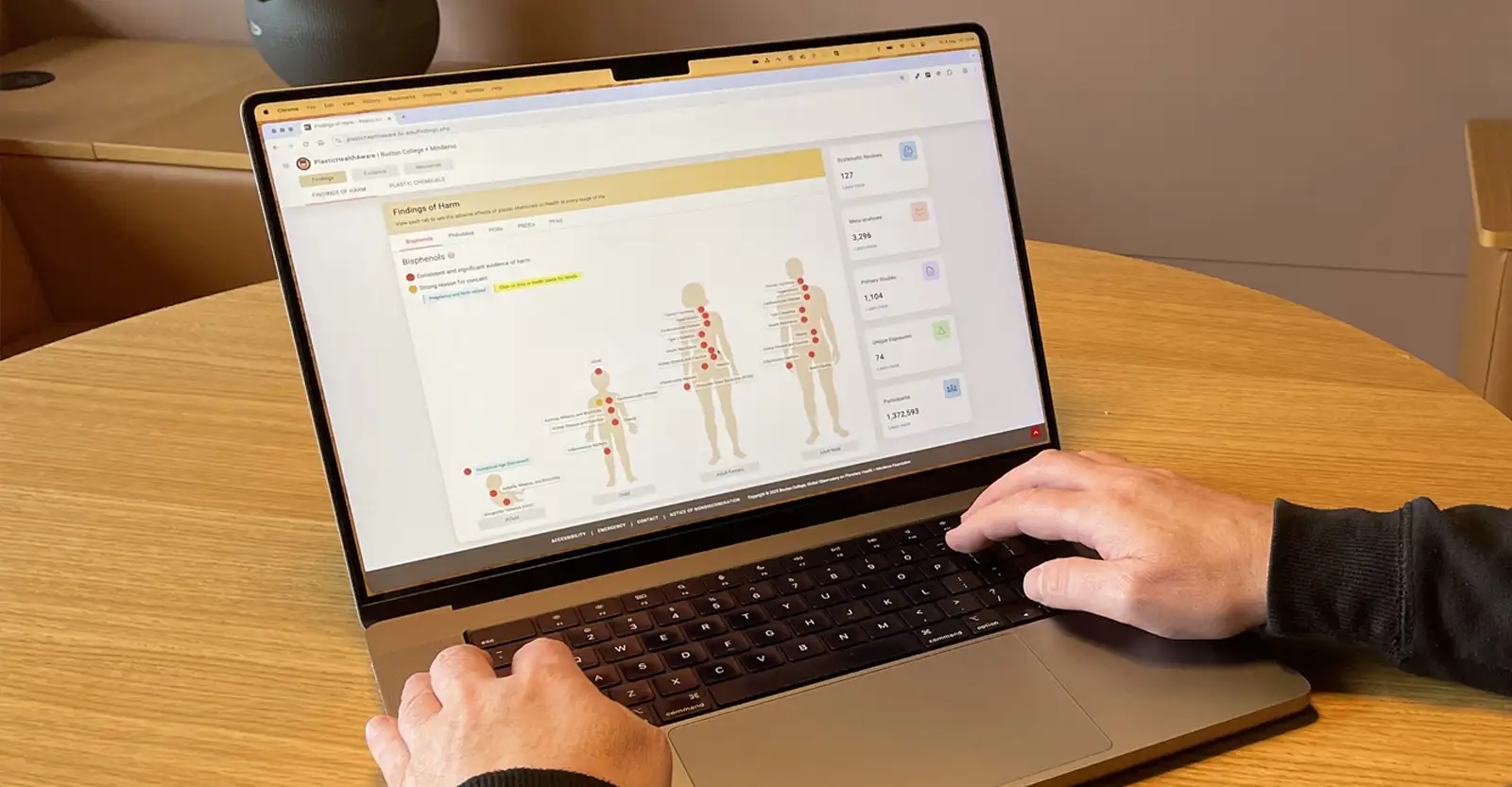Updated Plastic Health Umbrella Review evidence is now at everyone’s fingertips.
Every day, even before we are born, we are exposed to harmful chemicals that leach out of the plastic that has become so integrated into every aspect of our lives.
With so many new scientific studies on the effects of these chemicals on human health, the evidence of harm is mounting.
PLASTIC IS MAKING US SICK.
But, with so many findings published across thousands of articles, it is nearly impossible to get a clear picture of the chemicals and effects that are most concerning.
Minderoo’s Plastics & Human Health (PHH) research team uses ‘umbrella review’ methodologies that deliver a comprehensive overview of evidence without diluting or ‘cherry picking’ results to fit a particular view or narrative.
The team was determined to find an efficient way to bring updated findings to life and make them immediately accessible to all.
So, Minderoo partnered with Boston College to develop a tool to collect, analyze and broadcast the consistency and statistical significance of the evidence on plastic and human health on a single platform – the PlasticHealthAware Dashboard.
The beauty of the Dashboard is that it delivers findings from a broad and complex body of research in an easy to digest format, that anyone can access from a computer or mobile device.
It includes data from the original Plastic Health Umbrella Review, updated to include the data from studies published between 2020 and 2023 – data from over one thousand primary studies in total, representing more than 1.3 million participants from countries around the world.
The PlasticHealthAware Dashboard makes it clearer than ever before – plastics are not safe because of the dangerous chemicals they release into our bodies as we use them.
The newly presented evidence shows the impacts of increasing plastic chemical exposure include increased odds of miscarriage, as well as diabetes and hypertension in pregnant women.
Babies are at increased risk of being born before-term, having reduced head circumference, asthma and bronchitis. Children are more likely to have autism, changes in kidney function and inflammatory markers, and reduced vaccine responses. And babies and children are at increased risk of developing atopic dermatitis and thyroid function issues.
The new evidence linking plastics to health impacts in pregnant women, babies and children is particularly worrying.
These and a range of other health impacts consistently and significantly associated with plastic chemical exposures can be visualised on the Dashboard’s pictorial overview of each life stage. Science lovers can also take a deep dive into the data underpinning each finding.

Minderoo and Boston College are proud to launch PlasticHealthAware from Geneva during INC 5.2, the meeting the world is watching with bated breath, in the expectation that a Global Plastics Treaty (GPT) to end plastic pollution and protect human health will finally be agreed.
The Global Plastics Treaty provides us with a unique opportunity to fix the human health crisis attributed to plastic chemicals.
We need an ambitious Global Plastics Treaty that includes regulation of chemicals with consistent links to health harms and a financing mechanism that ensures all countries can implement the regulations, protecting all peoples.
With PlasticHealthAware, negotiators, delegates, scientists, the INC, policy makers and observers can now quickly and easily access scientifically reliable evidence on plastic health harms while on the ground in Geneva.
The PlasticHealthAware Dashboard
Visit the dashboard yourself and find out more at https://plastichealthaware.bc.edu.